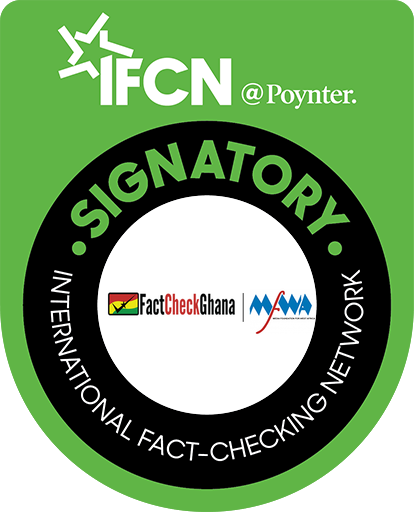June started with the Minister of Education, Dr Yaw Osei Adutwum, reacting to former education minister and presidential running mate of the NDC, Prof. Jane Naana Agyemang’s comments on the performance of students under the Free SHS programme. The Minister quoted the percentage of students who attained grades (A1 – C6) in some subjects indicating that the performance of students in the WASSCE under the NPP is better than the NDC.
However, the percentages turned out not to be true. The figures were at some at point overstated and understated at another.
Still, on politics, Gabby Otchere Darko, a leading member of the NPP, in his attempts to contradict, what many consider, a decline of press freedom, published some pieces of data on Twitter that drum home his argument. He claimed that:
“In just three years, between 2015 and 2018, six journalists were killed in the United States alone. Two are as a result of being on dangerous assignments and four were murdered. Interestingly, the data is never used to suggest that press freedom is under attack in America”.
When the fact-checking team dug through the source of his claims, it was discovered the CPJ, the source of his data, on at least two occasions have admitted press freedom in the US is on the decline. Again, other research papers affirmed the CPJ’s position on the state of press freedom in the US hence the fact-checking team rated this claim made by Gabby Otchere Darko as misleading.
On the Covid front, the team first looked at the possibility of a fully vaccinated person contradicting COVID-19 and infecting others. The findings indicated the likelihood of a fully vaccinated person transferring the COVID-19 virus to another person is minimal because the virus will be less transmissible in such a person.
Secondly, the Fact-Check Ghana team considered a viral claim made by a Nobel prize winner Professor Luc Montagnier that “all vaccinated people will die in two years”. The documents sourced proved there was no basis for this claim. All vaccines receive approval from the World Health Organisation (WHO) and the respective drug authorities of any country which intends to use them. According to WHO, there are strict protections and continuous monitoring in place to help ensure the safety of all COVID-19 vaccines.
Thirdly, Macroglossia simply known as a “swollen tongue” was the latest symptom reported by some persons who had been infected or had recovered from COVID-19. The condition prevents victims from being able to eat or speak. As the news on the swollen tongue went viral, the team delved into the claim and discovered that there’s not a direct correlation between the COVID-19 virus and Macroglossia. Dr Melville, a top researcher in Macroglossia, hence concluded that there is no need for people to worry about this condition. Dr Justice Duffu Yankson, who is also General Secretary of the Ghana Medical Association, said Ghanaians need not panic about the condition. He explained that:
“Tongue getting bigger can come out from so many things. You know people are allergic to things and when they take in or come into contact with such things, it results in a whole lot of issues. So probably, the medication that was given to the person [to treat the COVID-19] could have caused that because the person may be allergic to it. So, let’s wait and see what the research brings.”
Last but not least, the number of infections had been suddenly rising even after the first phase of vaccination across the world, leading people to wonder if vaccination was the way to go. A report was produced and published titled “must Ghanaians continue to take the covid-19 vaccine despite surge in cases in countries with higher immunization”. Leaning on the expertise of Professor Abraham Kwabena Anang, Director of Noguchi Memorial Institute for Medical Research, Fact-Check Ghana was able to get a better understanding of what vaccination does, what could be the cause of the spike in infections and whether inoculation is still the solution to fight the virus? He stated vaccination served several purposes, not just a way to stop infections.
“Vaccines are not necessarily meant to stop the virus but also ensures reduction of morbidity and deaths. Most people in Africa are asymptomatic regarding the COVID-19 and one thing the vaccination does is reducing the severity and hospitalisation so the number of people that were supposed to be admitted in hospitals and kept on ventilation to increase treatment cost for the state is all reduced”. In another breath he indicated why the number of infections was rising,” he said.
The deadlier and more transmissible Delta variant had been discovered on Ghana’s shores in the month of June. The havoc it had caused in India brought about a lot of concern among Ghanaians, so Fact-Check Ghana provided timely and credible information on issues of concern to the citizens and in this case “the Delta variant”. The report comprehensively explained how fast the variant spreads and the severity of the damage it does to the infected individual. Again, it indicated the effectiveness of the current mRNA vaccines is in fighting the delta variant.
Lastly, there had been general concerns among people, the extent to which COVID-19 weakens a victim’s immune system. In response to these concerns, the Fact-Check Ghana team looked at how COVID-19 can make the immune system susceptible to other infections after recovery. The findings indicated that people who had recovered from an acute infection of the virus complained about fatigue or muscle weakness, sleep difficulties, anxiety or depression while those who were severely ill had a higher probability of experiencing impaired pulmonary diffusion capacities. According to other research, people who have recovered from the virus stood a higher chance of death six months after surviving the infection.
The monthly fact-checked round-ups are part of a project supported by the Embassy of the Kingdom of the Netherlands.



